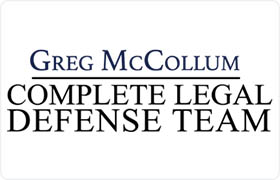 Wadmalaw Island White Collar Crime Lawyers, South Carolina
Wadmalaw Island White Collar Crime Lawyers, South Carolina
Sponsored Law Firm
-
 x
x

Click For More Info:
-
Greg McCollum Complete Legal Defense Team
1012 38th Avenue North Suite 202 Myrtle Beach, SC 29577» view mapCriminal Defence Law Complete Legal Defense Team
Our goal at the Complete Legal Defense Team is to examine the facts and circumstances completely and help our clients.
800-634-0690
Sponsored Lawyers
1-5 of 5 matches
DUI-DWI, Domestic Violence & Neglect, , Firearms, White Collar Crime
Call Charleston criminal lawyer John W. Molony now if you have been arrested in Charleston, Mount Pleasant, North Charleston, James Island, Folly Beach, Berkeley County or anywhere in the Charleston area. Being charged with a crime does not mean you are guilty, and John W, Molony Law Firm, LLC is committed to defending your rights and your reputation. If you have been arrested for DUI, drug crimes, disorderly conduct, traffic tickets, assault or domestic violence, call criminal lawyer John W. Molony and request a free consultation to discuss your case and your legal options. When you retain John W. Molony Law Firm, LLC, you can expect to have an attorney who will fight for you, answer your phone calls and devote the time your case deserves.
(more)Felony, DUI-DWI, Workers' Compensation, White Collar Crime, Car Accident
Charlie Condon brings a wealth of courtroom experience, judgment, and knowledge in seeking results for his clients. Charlie is a sole practitioner, so your matter will receive the individual attention it deserves.
(more)


 Greg McCollum Myrtle Beach, SC
Greg McCollum Myrtle Beach, SC AboutGreg McCollum Complete Legal Defense Team
AboutGreg McCollum Complete Legal Defense Team Practice AreasExpertise
Practice AreasExpertise


